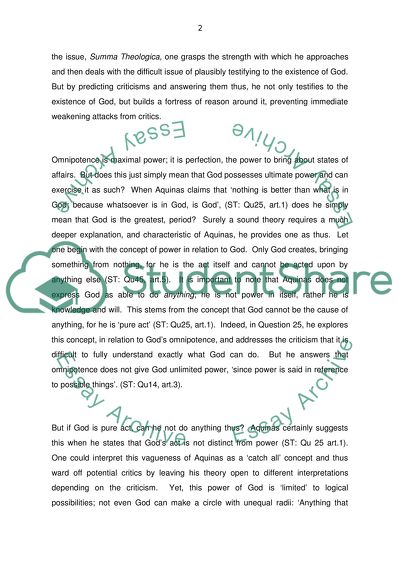Cite this document
(Concept of God with Particular Reference Essay Example | Topics and Well Written Essays - 1500 words, n.d.)
Concept of God with Particular Reference Essay Example | Topics and Well Written Essays - 1500 words. https://studentshare.org/religion-and-theology/1548841-evaluate-the-classical-theistic-concept-of-god-with-particular-reference-to-thomas-aquinas
Concept of God with Particular Reference Essay Example | Topics and Well Written Essays - 1500 words. https://studentshare.org/religion-and-theology/1548841-evaluate-the-classical-theistic-concept-of-god-with-particular-reference-to-thomas-aquinas
(Concept of God With Particular Reference Essay Example | Topics and Well Written Essays - 1500 Words)
Concept of God With Particular Reference Essay Example | Topics and Well Written Essays - 1500 Words. https://studentshare.org/religion-and-theology/1548841-evaluate-the-classical-theistic-concept-of-god-with-particular-reference-to-thomas-aquinas.
Concept of God With Particular Reference Essay Example | Topics and Well Written Essays - 1500 Words. https://studentshare.org/religion-and-theology/1548841-evaluate-the-classical-theistic-concept-of-god-with-particular-reference-to-thomas-aquinas.
“Concept of God With Particular Reference Essay Example | Topics and Well Written Essays - 1500 Words”. https://studentshare.org/religion-and-theology/1548841-evaluate-the-classical-theistic-concept-of-god-with-particular-reference-to-thomas-aquinas.


